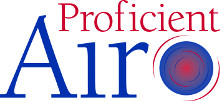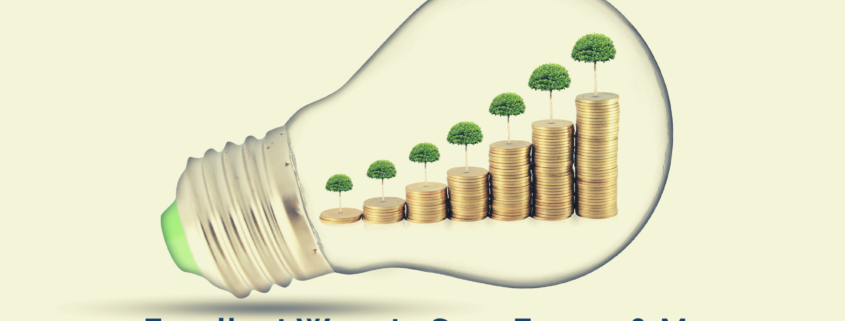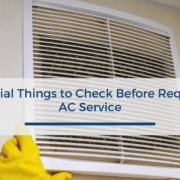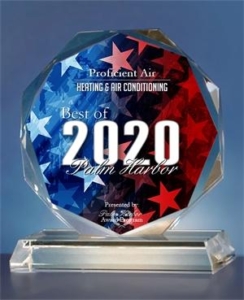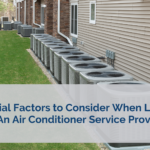11 Excellent Ways to Save Energy & Money During an Energy Crisis
The credible word across media outlets is that consumer energy prices will soar this winter. Even in our beautiful, warm Sunshine State, we will need to take measures to beat the heat and crush the cold without breaking the bank.
Chris Helman, an energy correspondent for Forbes reports, “Trying to bounce back from Covid, the world has run headlong into an energy crisis. The last spike of this magnitude popped the 2008 bubble.”
To explain what he means in that statement, Forbes provides a breakdown of the common energy sources used globally, and how much our costs will likely increase over the foreseeable future.
- Crude oil is up 65% this year to $83 per barrel.
- Gasoline, above $3 per gallon in most of the United States, is more costly than any time since 2014, with inventories at the lowest level in five years.
- Natural gas, which provides more than 30% of all U.S. electricity and a lot of wintertime heating, has more than doubled this year to $5 per million Btu.
- Coal is exploding, with China and India mining as fast as possible. The price of U.S. coal is up 400% this year to $270 per ton.
“The situation is considerably worse in Europe, where electricity prices have quintupled and natural gas prices have surged to $30/mm Btu—the energy equivalent of paying $180 for a barrel of oil,” Forbes reports.
You may or may not be impacted by some of these energy sources, but the bottom line remains – conserving home energy is economically crucial in 2021 to reduce our energy expenditures, make a minimal impact on climate change, and save our budgets going into 2022.
Here are eleven excellent ways to save energy and money during an energy crisis:
- Increase your thermostat temp. When cooling your home, keep your thermostat at 78 degrees or higher with the fan-selected to “Auto.” You can save more energy and money by setting the temp to 82 degrees or higher when you will not be home, and pets are not impacted. (Although we do not recommend higher than 80 in Florida due to the need for humidity control)
- Decrease your thermostat temp. During winter months, keep your thermostat at 68 degrees or lower to heat your home, with the fan on “Auto.” When you’re away, turn it down to 62 degrees or lower, unless pets will be impacted.
- Adjust your pool pump. If you maintain a pool, limit the time you operate your pool pump to six hours/day in the warmer months and four hours/per day in cooler months.
- Douse the lights. Use natural light whenever possible, light candles at night, and listen to your mother! Turn off the lights in rooms you are not using.
- Capitalize on wind and sun. Hang your laundry outside to take advantage of the power of wind and sun to dry your clothes and save energy. Dryers can be the biggest energy-zappers in the home.
- Clean lint filters. If you can’t dry things outdoors, thoroughly clean your lint filter. Dryer sheets can cause a build-up on the filter, so periodically wash and rinse your dryer filter and consider cleaning your dryer vents, too.
- Use the auto sensor function on your dryer. Many people like to choose to time-dry their wet laundry, but the best way to conserve energy when using your dryer is to select the auto moisture sensor to avoid over-drying your clothes.
- Unplug devices. This may seem like a hassle or overkill, but it will save power if you unplug devices that are not in use, like TVs, computers, charging cords, etc, to prevent power drainage, even when they are powered off.
- Turn off your ceiling fan when you leave the room. A fan that runs all the time costs up to $7 a month. If you are not occupying the room, there should be no reason to keep the ceiling fan operating. Flip the switch or pull the cord to turn the fan off and save energy.
- Routinely clean and/or replace the HVAC air filter. You may be tired of us preaching about changing the air filter in your air conditioner, but it does make a difference! Probably, the simplest and most important thing you can do for your HVAC system is to change the air filter as recommended by your system manufacturer or professional air conditioning contractor. If a filter is dirty and clogged with dust, pet hair and dander, tar from cigar/cigarette smoke, environmental allergens and pollens, etc, your air conditioning unit will have to work harder to cool your home. This will use more energy and drive up your utility bill. Take a few minutes to regularly check and change your HVAC air filter so your unit will run more efficiently and trim cooling costs.
- Professionally maintain your HVAC system. The best time of year to perform routine maintenance in the Tampa Bay area is during the spring and fall months. During these seasons, there are fewer extreme weather conditions that could damage your central air conditioning and heating systems. If you wait until summer or wintertime, then you will likely have untimely problems with your air conditioner or heat pump due to extreme hot or cold fronts. By scheduling regular maintenance every spring and/or fall, you can keep your air conditioning system operating efficiently and avoid problems that could require expensive service calls.
By trying some or all of these excellent energy-saving tips, you should notice a difference in your utility bill, even if it is minor. Forecasts indicate we are all in for shocking surprises to our electric, natural gas, and heating oil expenses, so whatever measures we can take to lessen the impact your our bank accounts, the better! Remember, you can keep your HVAC system functioning at its optimum energy efficiency with a regular professional, Proficient Air tune-up and air filter inspection and replacement in the Tampa Bay area.
Proficient Air in Palm Harbor offers a variety of high-quality air conditioning and heating systems, as well as routine maintenance contracts that are specifically tailored to meet your needs and budget. Contact Proficient Air when it’s time for air conditioning and heating maintenance, air conditioner and heater repairs, and new air conditioning or heat system installation in the Tampa Bay area. 727.386.2732
Source:
